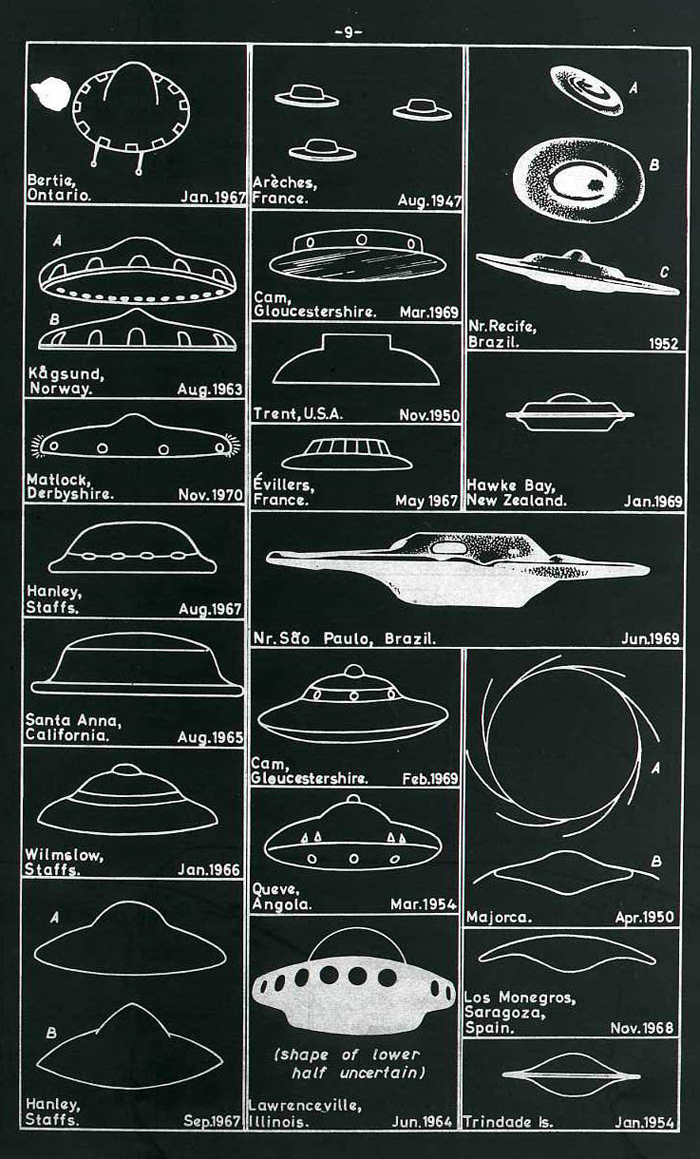
For decades, the Canadian government was investigating UFO sightings.
Matthew Hayes has spent the last year going through more than 15000 government documents on UFO sightings in Canada, using the Library and Archives Canada, which is available to the public. “It was pretty time intensive,” Hayes said.
“I was fascinated by the fact Canada had this investigation at all,” Hayes said. “For 45 years and in various capacities.”
Hayes is a Canadian Studies PhD student at Trent University in his fifth year. He has been featured on CBC Radio’s Ideas, Arthur Hour on Trent Radio, Qnet News, and the Peterborough Examiner because of his UFO research.
“I’m not really interested in explaining what UFOs are and how they work,” he said. “I come at this from a couple of different angles. History of science is one of them.”
Hayes, who also has a Bachelor’s Degree in Anthropology from Trent, said that once he started his research, he found that his project became focused on, “looking at how the Canadian state constructed itself in the post-war period, in relation to citizens.”
Hayes’ project investigates Canada in the post-WWII era, during which the Cold War caused tension and fear in its citizens. It became necessary to monitor the air traffic.
Initially, it was thought that UFO sightings were a product of Soviet technology, but, as Hayes explained, “The fear [was] quickly dispelled because nobody had the technology.”
In 1947, the Roswell, New Mexico UFO phenomenon occurred, after which UFO sightings became more frequent.
“There’s a massive spike in 1967 … and it’s still unexplained,” said Hayes. “It only continues to climb after that.”
During this time in Canada, people had general fears about aliens and the possibility of a Soviet invasion.
According to Hayes, most of the sightings occured around the Canadian-U.S. border. “There’s something that’s going on in broader culture that is contributing to this,” Hayes said.
The sightings reported in Peterborough were less than special.
“There’s a couple from Peterborough, but they aren’t spectacular,” Hayes said. “It was really just that someone vaguely saw an unidentified light in the sky and then it disappeared.”
“[The government] assumed from the beginning that it was all nonsense, people identifying natural phenomenon like stars,” he said. Either that, or people who were drunk or delusional and not seeing things correctly, he says.
“There was kind of a willful ignorance from the government’s side. It’s kind of an embarrassing topic.”
The government only went through with the project because of external pressure, he said.
“Hollywood has been lampooning the subject since the 1960’s,” Hayes said.
Media depictions of little green aliens and UFO invasions would make it difficult for an MP to give taxpayer money into a project of this nature, despite its importance.
Hayes says his UFO research, “tells us a lot about the relationship between the government and its citizens and the trust between them.”
He says that the sharp rise in sightings in the late 1960s has a direct link with the lack of trust in the government and its institutions.
“It speaks to people’s sense of control over their lives and their reality,” Hayes said. “People use the UFO thing as a way of questioning the government — it’s less about getting UFO information and more about questioning the foundation they built for knowledge.”
Throughout Hayes’ research, he found that the sightings were taking on a divine overtone. “The more I think about it, it seems that this phenomenon is religious by nature.”
Hayes said that he’s never had a negative reaction to his research, but thinks that this is because of the way he is is researching the UFO sightings.
“I think if I was a scientist studying this project it would be very different. I’m not a scientist. I’m looking at this as a historical phenomenon and a social phenomenon and I think that’s how I get away with this.”
While the sightings haven’t conclusively confirmed the existence of extraterrestrials, they are still unable to be identified, so there’s still hope for those who want to believe.
“I have an I want to believe [X-Files] poster in my room,” Hayes said. “Some days I really do want to believe, and maybe I do.”
If you see any UFOs flying over Trent University, be sure to report them to the RCMP.
